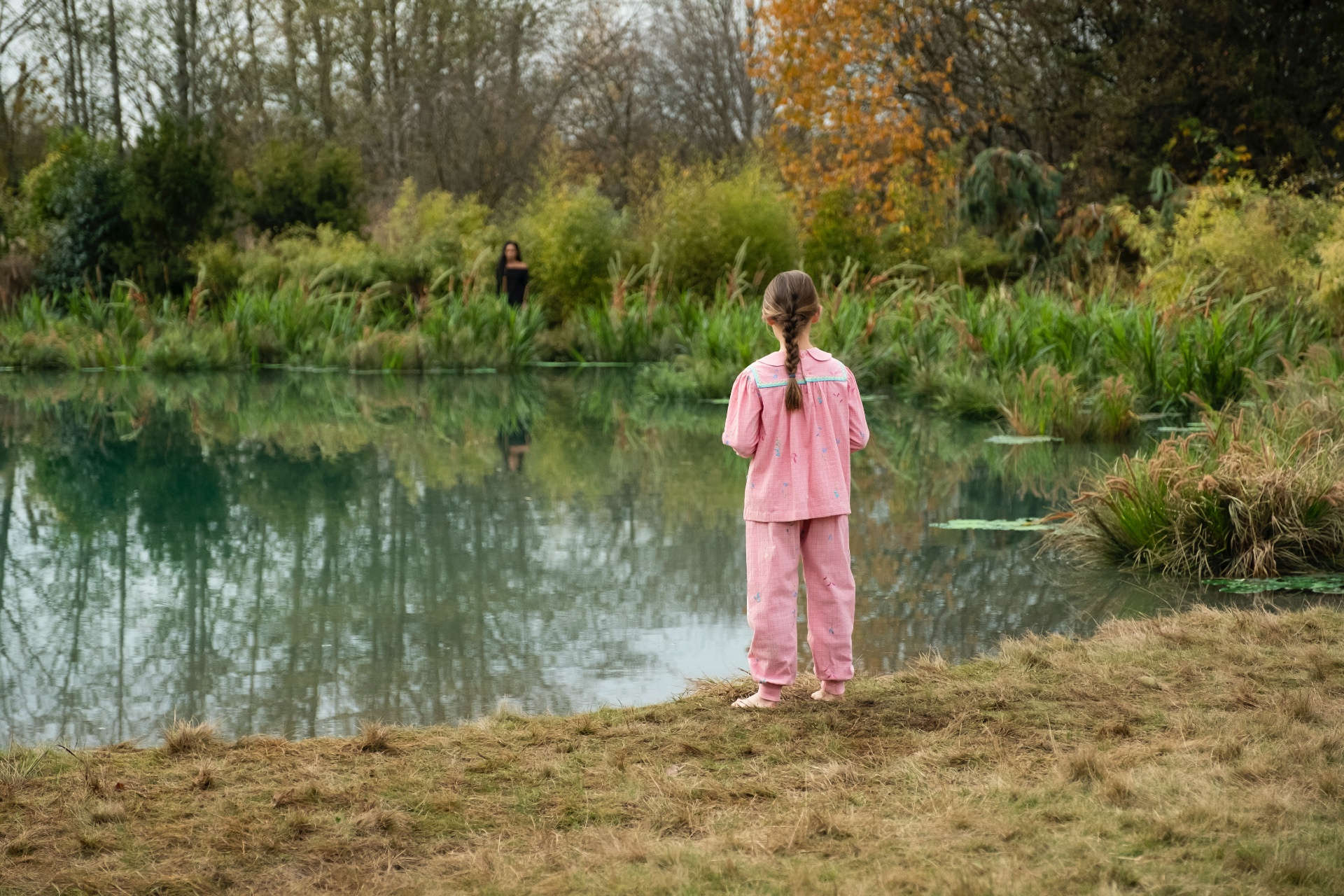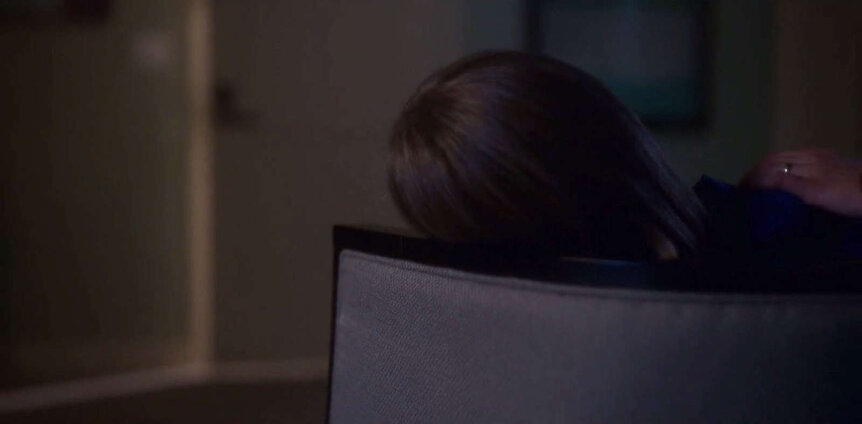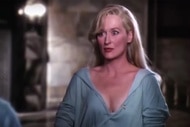Create a free profile to get unlimited access to exclusive videos, sweepstakes, and more!
Mike Flanagan's ghosts: Love, death, and memory in The Haunting of Bly Manor

What is a ghost? Way back in 2018, Mike Flanagan, via Stephen Crain, the protagonist of his 2018 miniseries The Haunting of Hill House, told us that “Ghosts are guilt, ghosts are secrets, ghosts are regrets and failings. But most times, a ghost is a wish.” Flanagan is far from the first over the last decade to use the genre of horror as a vessel to explore familial trauma — Hill House wasn’t even the first time he’d done it in his career, with 2013’s Oculus exploring the same ideas in a near-identical story — but Hill House seemed to strip away all pretension. Here was a ghost story that told you from Episode 1 it would be a family drama first, a ghost story second.
**The following contains spoilers for The Haunting of Bly Manor.**
Flanagan’s exploration of the way trauma can permeate generational gaps is the basis of much of his best-known work, with Oculus, Hill House, and Doctor Sleep functioning as a sort of thematic trilogy pondering whether or not we’re doomed by our parents’ mistakes. When a follow-up series to Hill House was announced, it felt safe to say that the series would echo the same ideas he’s long ruminated on through his work. But The Haunting of Bly Manor wastes no time in distinguishing itself from the rest of Flanagan’s work, especially in what the specters who walk the halls of the house represent. Bly Manor’s ghosts remain projections of guilt, regrets, and failings in some cases. But ultimately, these ghosts are something different: memories.
Speaking personally, what’s always drawn me to Flanagan’s work is that he seems to approach his projects not from a place of plot or character but of theme and emotion. Every story beat, every arc, at times even seemingly casual strings of dialogue serve the master of theme above all else. At times this can lead to unevenness in other departments — see Bly Manor’s leisurely pacing, which hasn’t sat well with all viewers (zero complaints here, though) — but if you’re someone for whom that sort of approach works, those missteps are largely forgivable. The result of a story successfully working in service of character or theme can be spectacular, but pulling off a story like Bly Manor the way Flanagan does can make for something more transcendent, which (again, personally) is not only more impressive but more important.
It’s not entirely clear what Flanagan is doing with his ghosts through the first few episodes of the show. The bespectacled specter stalking Dani is eventually revealed as a very Hill House-esque projection of grief and trauma (though unlike Hill House the text largely suggests that he is just that — a projection, not a ghost), and eventually the narrative seems to coalesce around Hannah, Rebecca, and Peter, three ghosts whose stories truly couldn’t be more different.
Eventually, the show takes a unique turn and lets us in on what the afterlife is like for its ghosts rather than only letting us see them through the haunted. We’re shown that they walk through our world only until memory calls them away — literally. The afterlife is memories, both fond and frightening depending on how you lived your life before. (The show seems to suggest that constantly reliving one of his worst memories is Peter’s punishment for his many sins.)
It’s in telling the story of the Lady in the Lake, ostensibly the Big Bad of Bly, that Flanagan starts to show his hand. After a brief detour from neo-Gothic to old-fashioned Gothic, we learn that Viola became the faceless, seemingly malicious specter walking the halls of Bly simply because time wore away what was left of her in death. In her story, Flanagan’s take on Bly Manor’s ghosts becomes clear: Ghosts are the memory of those who leave us.
But what happens when those memories fade? What happens when a woman who only remained in this realm of existence after death to see her daughter grow up never gets the chance to? At what point does her walk through the halls of Bly go from an action with profoundly emotional intent to a motion repeated over so many times over so many years that it instead becomes an unbreakable habit? And if Viola’s stubbornness and love for her daughter is what made her who she was to the world, what does she become if these traits are sanded away by countless empty years passing through her, years spent with nothing but loneliness and an increasingly faint memory of betrayal?
I can’t speak for every Bly Manor viewer, but I think it’s one of the more heartbreaking ideas I’ve seen explored in a ghost story. Memory is all we have of those who leave us. And memory is an unreliable thing — it is fallible, and no matter how hard you fight it, it will be lost to time.
A few weeks after the loss of my best friend a year ago, one of our mutual friends passed on to me an old Spider-Man T-shirt of his. I recall holding it close and realizing his scent still lingered on it. Eventually, the scent faded, and while today I can still conjure in my mind, I know that one day I won’t be able to. One day I won’t remember what it felt like when he bent his 6’2” frame over to give me a big hug. The details, the things that made him who he was to me, will be gone. I imagine when that day comes, I’ll still remember the important things — his warmth, his insatiable curiosity, how he made me feel when we were together — but it still hurts to know that there may come a day when I can’t recall the sound of his voice.
It’s hard to not feel a personal failing when those days come, like we’ve let down our dead, like we’re not doing a good job of carrying on their legacy, whatever that legacy may be. The ghosts of Bly aren’t a condemnation of that inevitability, nor a balm to soothe the ache of it. They’re an observation: Memory makes us who we are, both to ourselves and to those around us. When we go, they’ll remain — at least for a time.
If there’s any definitive statement Bly Manor looks to make on the matter, it does so through a character haunted as any, though not by a spirit. Watching the series a second time, it’s impossible not to notice how beautifully Rahul Kohli’s Owen seems to articulate everything Flanagan wants to say about ghosts as memory as he’s eulogizing his recently passed mother by the bonfire in Episode 4. She has, by his account, been losing herself to dementia over what appears to be several years. When she finally passes, it’s unfortunately not much of a surprise to her son.
The pain of having to watch the parts of his mother that he recognizes slowly fade away is present in every step Kohli takes as Owen. By the time dementia takes her she, by his own account, hardly knew who she or her son was. But he takes umbrage at the way she’s eulogized at her own funeral. He tells his friends:
“They left out all the bad stuff and all the good stuff. They didn’t say how funny she was, how she’d wink at you from across the dinner table... and she loved me so hard it hurt sometimes, no matter what I did. She was gone long before she died ... and all I could do was let her hang on to me until it was time to let go. And soon I’ll let her go, too.”
If a ghost is a memory, it’s given life by those who loved it. There may come a day when those memories fade, when the ghost gives way to a shapelessness that can’t be reformed. We can’t fight the inevitable. But when night falls, we can leave the door open a crack.















